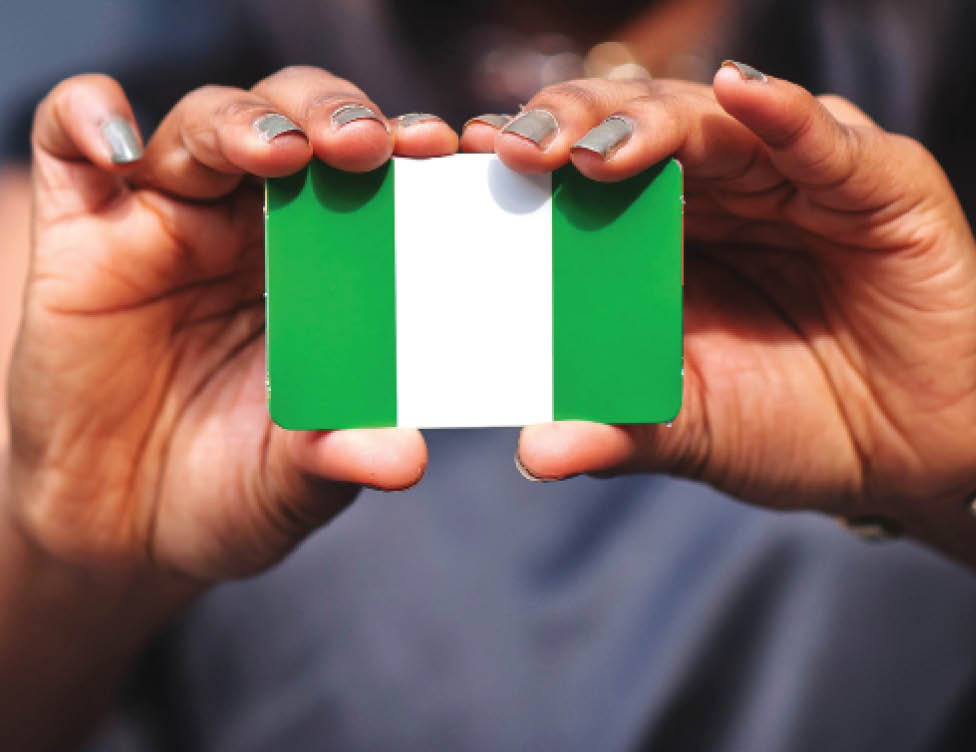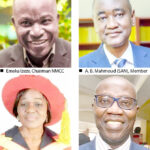We must think outside the box. For some reason we have been unable to think beyond OA Lawal, that ‘Government’ textbook in secondary school that defined how everything, every system of government should be… theoretically.
We failed to read that book in the context of history, and we treated the study of ‘government’ like a science, instead of an art that evolved with time. Therefore, non-existent terminologies such as ‘true democracy’, and ‘true federalism’ made landfall in Nigeria and refused to go away. Rather these phantom terminologies have only gathered steam and are threatening to define our collective future.
- Ijaw not part of any group agitating for secession — Diri
- Fresh crisis looms in Zamfara, Yari, Marafa reject Matawalle as leader
I have heard professors and proletariat alike swear by these terms. But here we were, and Ghana somehow has a sitting, democratically and ‘popularly’ elected president, just as Kenya, France and many more countries around the world. That did not stop those countries maintaining parliamentary systems side by side with the presidential. Which textbooks did they copy from? None of them came to Nigeria to confirm whether they could tweak their governance systems to suit their cultures, their peculiarities, their histories. None of them sought American, British or United Nations approvals too. Yet we in Nigeria are stuck in the rut of dishonesty and if you like, physical, mental and intellectual laziness, digging in the sand for a ‘true democracy and true federalism’ that will suddenly solve our problems. And we are willing to make a mockery of ourselves on the international scene, as a people who cannot solve their own problems.
In the same vein, we also seek a perfect constitution, as if a constitution has ever a nation made. What I see, scanning the world, are nations that have been made because men, women and children decided to come together and somehow found sense in their unity in spite of diversity, and so worked so hard, sacrificing much, until they were reckoned with by other nations.
Constitutions are documents by which these nations maintained order among their citizens and residents. Nobody wakes up daily to consult the constitution before interacting with their fellow citizens. At best people consult religious books to validate their moral codes or to try and keep themselves in check. If anything, this is how we raise our children. Show me a man who raised his children by the constitution of the Federal Republic of Nigeria – or indeed of anywhere else – and I will show you a lunatic. In short, morality supersedes any constitution. A nation that has lost moral compass among its elite, politicians, professionals and hoi polloi can never recover normalcy by carving a new constitution like some modern-day Ten Commandments. In fact, such a nation will not be able to sit and agree on the first clause of a new constitution. Therefore, constitution is what our elites whip out as an excuse each time they seek to deflect attention from themselves. For a man who is not ready to change his ways, and start from within, or to influence his environment positively, a national constitution is an easy scapegoat.
My concern today is not the constitution though, even as I wish us luck as we forage around for the perfect one. My thoughts are about democracy. I was spurred to write this article, reading through an article written by Prof. Jibrin Ibrahim, titled ‘Democratizing Nigerian Democracy’. In a nutshell, the good prof was saying that even our democracy needs some democracy. We know we are not practicing democracy in Nigeria. But whatever it is we are practicing, if we somehow became a ‘perfect democracy’, what will we achieve for our country? Those were my thoughts. Do we need a perfect democracy? One where majority carries the vote and they are always contacted before any decision is taken? The way I look at it is to ask what exactly we are trying to achieve.
Nigeria today faces an existential crisis on several fronts; a collapsing economy, burgeoning poverty, food inflation, spiraling unemployment, the worst housing crisis in the world, even as the rest of the world powers on into a future driven by robots and all sorts of arcane technologies. Given between a choice to save all of ourselves and make rapid progress to transform our spaces, to achieve a better standard of living for almost every Nigerian along the lines identified above (security, education, water, electricity, healthcare, social services, good environmental services and so on), and a choice at ‘true democracy’, where everyone speaks at the same time, exercising their itching ‘opinionitis’ (apologies to Reuben Abati), where everyone feels too big to stoop for the other, where everyone suspects the other and accuses them ad nauseum, where everyone shows their democratic smarts and kowtows to the approving gaze of western hegemons, and no one gives an inch at all as we retrogress into extinction, I will choose progress. Yes, I will choose an imperfect democracy that delivers for humanity first. We will get to that perfect democracy later.
We often make the mistake of equating ourselves with present day USA or some other matured democracy. That is a grave error. What we should do more is understand history – not only of ourselves – but of how the world arrived at where it is today. Many Nigerians are ignorant of the reality of many of these developed countries. Two examples will suffice. A medical doctor friend of mine living in the USA once told me ‘you guys are so free in that country!’ He said to me that we get away with so many things in Nigeria. In the USA he feels caged and under surveillance. I know for a fact that there is more freedom in Nigeria. Then look at the constitution. The ‘WE, THE PEOPLE’ that commences the USA constitution is equally a fraud, if the Nigerian one is a fraud. In fact, ours may be a better representation, for in the year 1776 none of the landowning aristocrats who came together to write a constitution and unite the colonies that formed USA asked for the opinions of any of the poor people. They wrote in that constitution that black people are at best two-thirds of human beings, and that women were not fit to vote, neither were white men who are poor and own no land. But in spite of the initial fraud that should have read WE, THE ARISTOCRATS AND LANDOWNERS, the Americans have continued to forge ahead. The constitution has been amended 27 times and counting.
I find more evidence in classical thinking, to support my position that the embrace of ‘pure democracy’, ‘perfect constitution’ and ‘true federalism’ are ill-timed and delusional for us Nigerians at this time. Again, I call instead for a keen focus on elevating the minds of our people through a keen focus on accountability in governance and the provision of public goods that improve our lives. There’s a reason people like Socrates and Pluto disliked democracy and I will expand on that below. It often leads to the tyranny of the uneducated and poor majority. America for example could be said to have developed rapidly under very imperfect democracy such as ours… and slowed down when people started to demand for rights and get very entitled on all sides.
I recall listening to someone say they now live in the USA at a time when almost everyone is wired to do as little as possible while claiming as much benefits and space as possible. Countries don’t grow in leaps and bounds that way. China also grew fast at a point when people sacrificed greatly. Luckily for these two countries they did so many profound things that will tide them over for long, so when and if their people change, the countries still continue to improve because standards have been set.

 Join Daily Trust WhatsApp Community For Quick Access To News and Happenings Around You.
Join Daily Trust WhatsApp Community For Quick Access To News and Happenings Around You.


